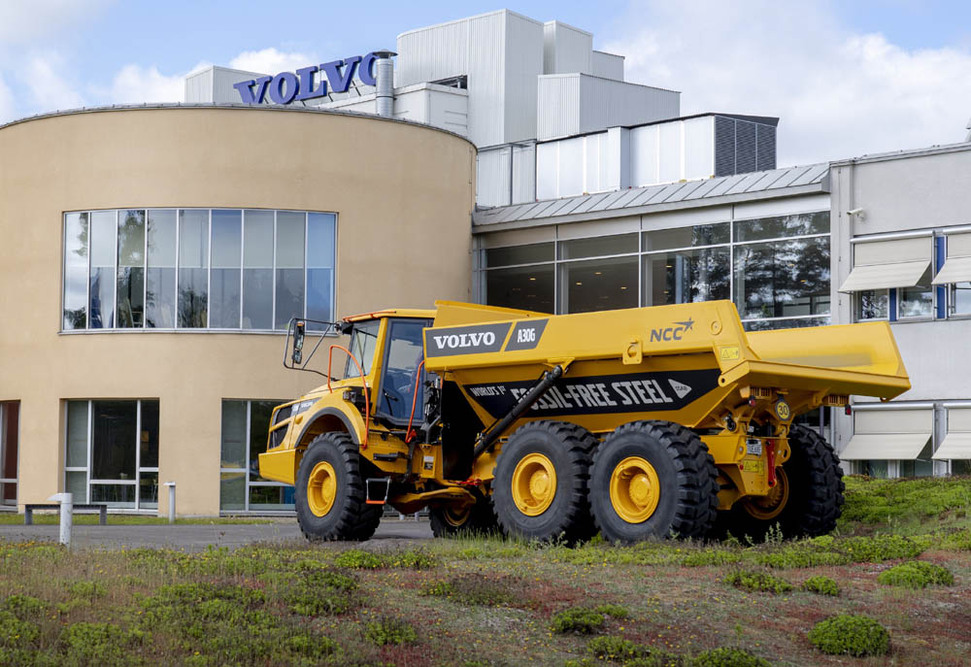

The A30G articulated hauler made from fossil-free steel was built at Braås
The investment, which will be made between now and 2027, is intended to accelerate the phased shift towards electromobility for the company’s articulated haulers.
“The decision to invest in Braås was made by AB Volvo’s board of directors and means that the factory will be adapted over the coming years to enable it to produce a larger range of articulated haulers with different types of powertrain to reflect the shift in demand towards equipment with more sustainable power sources,” the company said.
“The investment will be used to extend production capacity at the 45,000 m² site in southern Sweden to broaden the product range going forwards, with the addition of new buildings and production equipment.
“Setting its sights firmly on the future and in line with its purpose to build the world we want to live in – and workplaces we want to work in – Volvo CE will also invest in automation and ergonomics to both reduce the need for employees to engage in repetitive tasks and create a safer work environment.”
As well as constructing the world’s first articulated hauler made from fossil-free steel, the engineers based at Braås have been instrumental in the building of the world’s first prototype articulated hauler powered by hydrogen fuel cells – the concept Volvo HX04 – which is currently the focus of testing to develop future hydrogen solutions.
Volvo CE claims that Braås is also leading the way in environmental protection and was the first in the construction industry to achieve a carbon neutral operation powered entirely by renewable energy. In 2018, the site also became a zero-landfill facility.
“The transport and construction industry is undergoing a transformation with, among other things, an increasing number of electrified vehicles,” said Jonas Lakhall, site manager at Volvo CE in Braås.
“This investment will enable us to adapt and extend our production facility so that we can offer a broader range of machines – with different powertrains – to our customers and help them meet their emission reduction ambitions.
“It is important for us to continue to be at the forefront and make clear decisions to meet our ‘Science Based Target’ commitment to achieve net zero value chain emissions by 2040. By adapting our production for electric machines, we are progressing along our electrification roadmap.”




